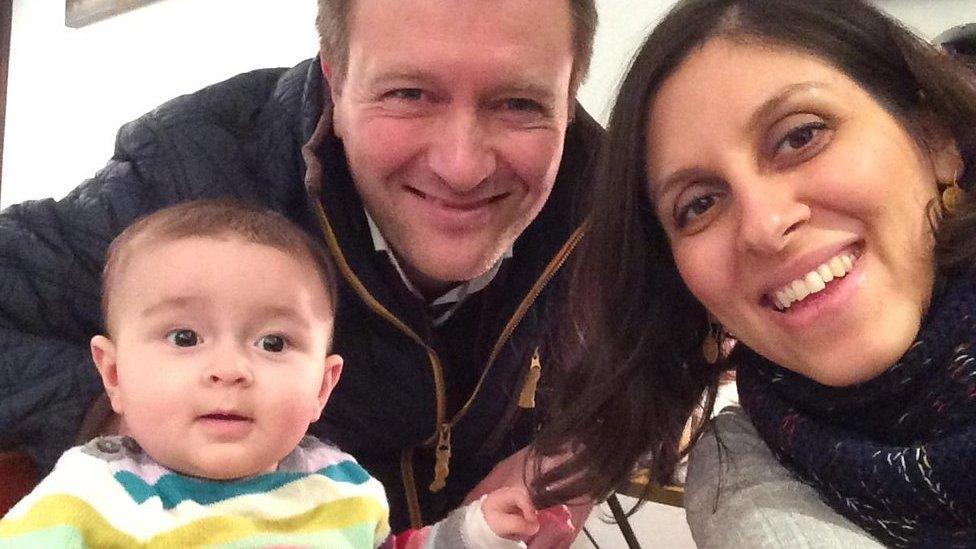Nazanin Zaghari-Ratcliffe: Jailed Briton does not have cancer, husband says
- Published
Richard Ratcliffe tells BBC London it was a "great relief" to hear that his wife did not have cancer
Jailed British-Iranian woman Nazanin Zaghari-Ratcliffe does not have breast cancer, her husband has said.
Richard Ratcliffe told the BBC his wife saw doctors after finding lumps in her breasts and it was a "great relief" to find out they were not cancerous.
Mrs Zaghari-Ratcliffe has been held in Iran since April 2016 after being accused of spying - charges she denies.
Mr Ratcliffe said she would appear in court on 10 December on a second charge of "spreading propaganda".
The full details of the allegations against Mrs Zaghari-Ratcliffe have never been made fully public.
Her family have always maintained she was on holiday with her daughter.
Mr Ratcliffe told BBC London: "It looks like they (the lumps) are not cancerous, so that was a great relief.
"The doctor said we will see you in three months but that feels like it's a stay of execution there."
But he said in terms of her mental health, she was "pretty fragile".
Mrs Zaghari-Ratcliffe, who lives in London, was arrested while she was at an airport with her daughter Gabriella while visiting her family on holiday last year.
Her daughter had her passport confiscated and is being taken care of by relatives in Tehran.
In September 2016 she was sentenced to five years in jail on undisclosed charges.
But speaking in Westminster on 1 November, UK Foreign Secretary Boris Johnson appeared to contradict her account when he said she had been training journalists there.
Four days later, Mrs Zaghari-Ratcliffe was recalled to court in Iran and his remark cited as evidence against her, prompting fears her five-year sentence could be extended.
Mr Johnson has since apologised for the remarks and retracted "any suggestion she was there in a professional capacity".
Mr Ratcliffe raised the issue of his wife being given diplomatic protection in a subsequent meeting with the foreign secretary.
The protection would signal that the UK is treating the case as a formal, legal dispute between the UK and Iran. The Foreign Office said its lawyers were discussing the issue.
- Published13 November 2017
- Published12 November 2017
